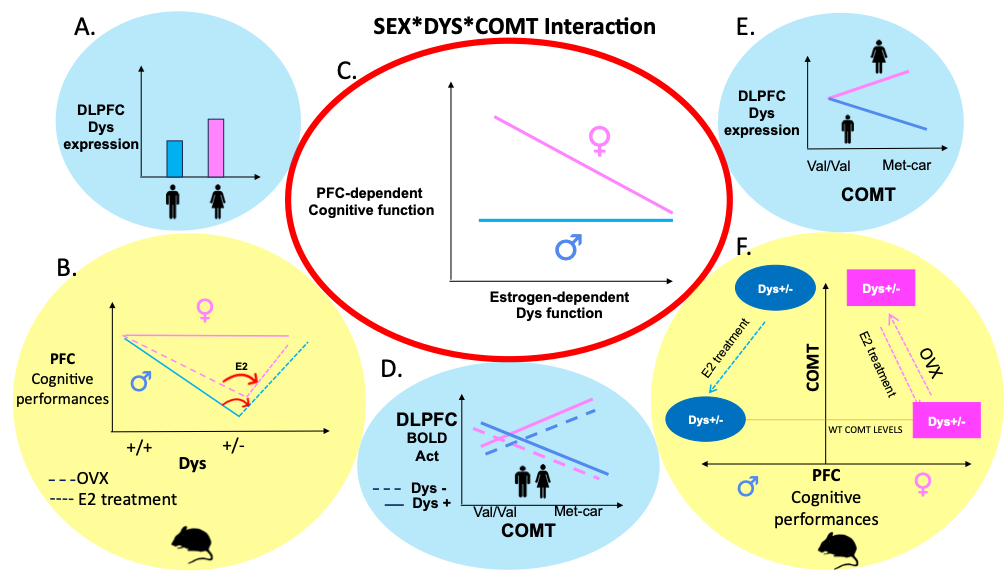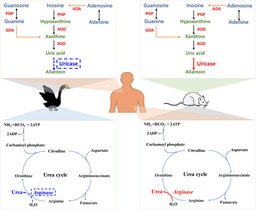Sex dimorphism controls dysbindin-related cognitive dysfunctions in mice and humans with the contribution of COMT
Published in Neuroscience and General & Internal Medicine
These results underline the importance of sex as a biological variable in the precision medicine approach to schizophrenia.
Genetic variants of the DTBPN1 gene, associated with reduced expression of the dysbindin-1 protein (Dys), negatively affect cognitive functions in schizophrenia through a functional epistatic interaction with catechol-O-methyltransferase (COMT).
We hypothesized that the cognitive dysfunctions modulated by genetic variation of Dys could show sex-related modulation depending on COMT gene and estrogen levels.
In general, our results show a differential impact of functional variants of the DTBPN1 gene on cognitive functions between sexes in mice and humans, suggesting that genetic variants that reduce the expression of Dys protein could probably become functional in females when the protective effect of estrogens is attenuated, i.e., during menopause

Graphical summary of the findings. Theoretical representation describing the impact of functional variants of the DTNBP1 gene interacting with COMT on PFC-dependent cognitive functions between sexes in both mice and humans. C. Overall finding: PFC-dependent cognitive function is negatively modulated by the interaction between DTNBP1 genetic variation and estrogen levels. A. Dys shows a greater expression in the DLPFC of women relative to men. B. PFC-dependent cognitive performance is negatively affected in male mice and ovariectomized females by removing a copy of the DTNBP1 gene, and this is reversed by estrogen treatment. D. Brain activation in DLPFC during WM is modulated by the epistatic interaction between DTNBP1 and COMT genetic variations. E. The effect in A is modulated by the interaction between the genetic variation of COMT and sex. F. In mice PFC cognitive performance is modulated by the interaction of DTNBP1 genetic variation, COMT genetic variation, and estrogen levels. Yellow circles indicate mouse experiments, blue circles human experiments, and white circle the overall findings.
Follow the Topic
-
Molecular Psychiatry

This journal publishes work aimed at elucidating biological mechanisms underlying psychiatric disorders and their treatment, with emphasis on studies at the interface of pre-clinical and clinical research.





Please sign in or register for FREE
If you are a registered user on Research Communities by Springer Nature, please sign in